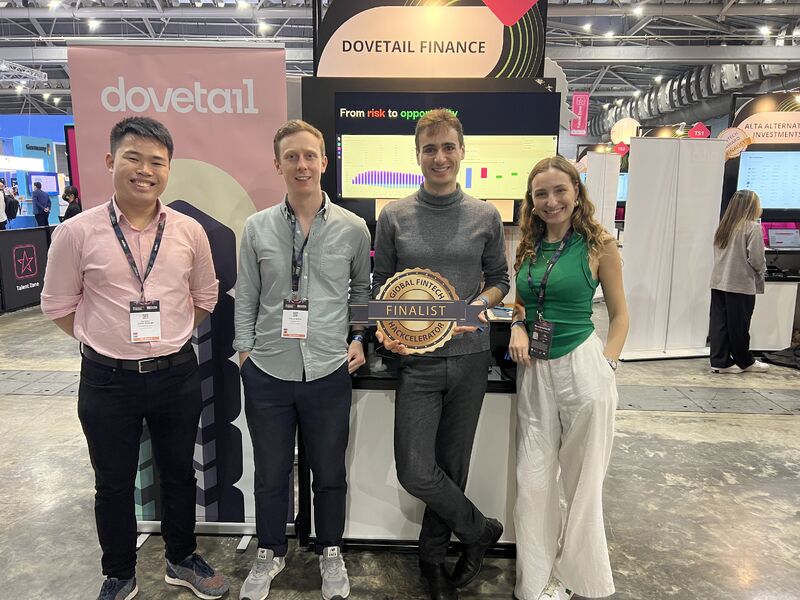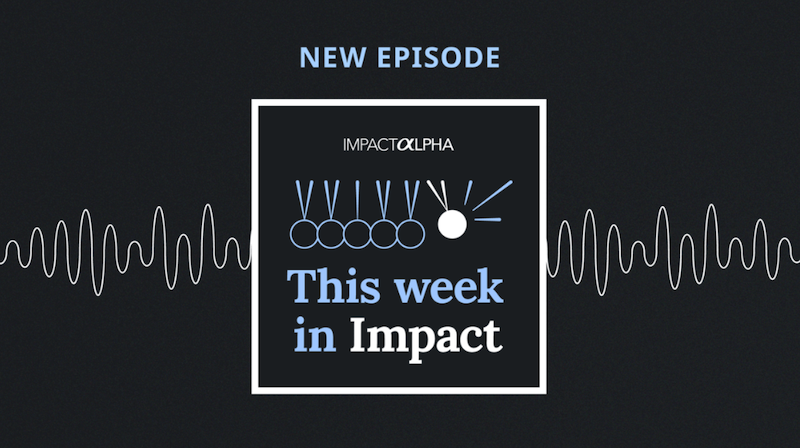SJF Ventures, one of the earliest private equity impact investors, is poised to wrap up fundraising for its $75 million third fund this month, pointing to the appeal of impact funds with strong track records and a history of successful exits.
Managing director and co-founder David Kirkpatrick said the Durham, N.C., firm has raised $56 million to date from both traditional institutional investors and mission-focused limited partners, reflecting SJF’s focus on market-based, commercial ventures that also deliver sustainable social or environmental benefits.
“It’s not like there are 500 SJFs to look at,” said Daryn Dodson, a consultant to the Calvert Funds, which helped kickstart SJF’s first fund in the late 1990s. “They’re very experienced VCs whom their entrepreneurs speak highly of and who are delivering market returns to LPs.”
Repeat investors include Citibank, Deutsche Bank, Calvert Equity Portfolio, Armonia, Abacus Sustainable Fund and Trillium Asset Management LLC. New investors include wealth manager Caprock Group, New York family office OpenBox and ImpactAssets Inc., a Bethesda, Md., nonprofit financial services group focused on impact investment strategies. (Disclosure: ImpactAssets serves as Impact IQ’s fiscal sponsor for nonprofit grant funds.)
SJF has already written its first check out of Fund III, with last September’s investment in San Diego-based BioSurplus Inc., specializing in laboratory equipment reuse and recovery.
Track record
The new fund is the latest step in SJF’s 14-year record of investing in impact businesses. Its LPs say the firm’s success in applying traditional VC and private equity principles to mission-oriented undertakings offers a road map for new or emerging impact investment fund managers.
“It’s not easy to be a leader in this field, and to help prove the hypothesis is a major contribution in itself,” says Dodson. “SJF has really paved the way for others and for those of us in the LP world to pursue the vision of building impact investment funds.”
With the third vehicle, SJF, now with about $90 million of assets under management, took advantage of the Small Business Administration’s SBIC program, called the Impact Investment Initiative, and became the first licensed national impact investment fund. SBIC’s initiative, a $1 billion, 5-year plan launched in April 2011, supports funds specializing in clean-tech and education.
Kirkpatrick, who began his career as a clean technology entrepreneur, co-founded SJF with Rick Defieux, a veteran VC formerly with Allegra Partners and Edison Venture Funds. The two shared common aspirations and philosophies. Defieux was an early backer of clean tech, putting money into 25 energy, environmental and communications companies. Kirkpatrick launched and managed two successful businesses—a solar energy and recycling company called SunShares, and Kirkworks, a cleantech investment research firm.
The two sought ways in which an impact fund could be “a strategy for generating financial alpha and yet win access to highly competitive deals because of our unique DNA,” Kirkpatrick says. They have developed a reputation for painstaking due diligence.
“I was impressed with their attention to detail in looking at companies to invest in, and in tracking performance on both financial and social metrics,” said OpenBox partner Brian Berkopec.
SJF raised $17 million for a debut fund in 1999. Its second, a 2005, $28-million fund, showed a net internal rate of return in the mid-teens, putting it in the top 10 to 15 percent of its peers, according to Kirkpatrick.
SJF invests a maximum of about $7 million per asset. SJF often coinvests with traditional venture capitalists and private equity firms. Together with OpenAir Ventures, it backed the launch of eRecyclingCorps, an Irving, Texas-based provider of wireless device recycling systems, in 2009. It has also worked with Tap Advisors and Management and Kleiner Perkins Caufield & Byers.
All told, SJF has invested in 35 companies since inception. Of those, it has “substantially exited” from 22 deals, Kirkpatrick says, though it may continue to hold small stakes in some of the companies.
“That they’re still around is impressive, and that they’ve outperformed many of the pure play VCs-—delivering market returns, with the occasional 2x to 3x, to LPs—is pretty impressive,” says Dodson.
SJF concentrates on resource efficiency, sustainability and tech-enhanced service companies whose positive impact is integral to their businesses and drives performance. “Our theme is to look for companies where there’s an acceleration of growth, margins driven by positive impact and a strong exit potential,” Kirkpatrick says.
Successful Exits
SJF’s record of successful exits that also preserve companies’ missions is key to the firm’s reputation. Kirkpatrick said investing in companies with societal and environmental values that are “nice to have” but not integral to the business can cause problems because those values might get swept away in an acquisition. If they’re baked into a company’s operations, drive value and engage employees, those values should be carried forward as elements of future success, he said.
“We certainly want the companies we helped to build—and the employees and services they provide—to have sustaining and enduring value,” Kirkpatrick says. “But we’re a 10-year fund with the need to generate proceeds for our LPs. You have to get those two models together.”
As an example, Kirkpatrick pointed to Cleanscapes, a Seattle-based recycling and waste management company (pictured above). Cleanscapes began in 1997 as a cleaning and maintenance business serving Seattle’s Historic Pioneer Square District, and helped the city reduce the use of dumpsters, which promote excess waste and illicit activity. Its business model appeared viable and scalable and promoted environmental and community values that appealed beyond Seattle.
SJF liked the company’s “progressive waste management model, helping Seattle move toward a zero-waste strategy,” Kirkpatrick says.
SJF provided close to $2 million as part of an $11.8 million Series A round in Cleanscapes in 2008, alongside other undisclosed backers. The round was intended to support growth and expansion. By then the company’s operations had expanded outside Seattle to Shoreline, Wash., Portland, Ore. and San Francisco.
When it came time to explore an exit, Kirkpatrick said, Cleanscapes picked Recology, a San Francisco recycler and waste management enterprise. A deal was announced October 2011. The merger value was not disclosed, but it was reported to be at least $66 million, the threshold that triggered filing requirements under the Hart-Scott-Rodino Act. Kirkpatrick declined to provide additional financial details.
“There was a very good financial return, good employee engagement and similar ethics across both companies, which had similar approaches to helping communities divert waste,” says Kirkpatrick.
Kirkpatrick highlights other success stories: Ryla, a Kennesaw, Ga., call center services company that emphasized strong workforce motivation, and SalvageDirect, a Titusville, Pa., pioneer in automotive salvaging, among others. Such exits have been central to SJF’s ability to raise follow-on funds.
The federal SBIC license allowed commercial banks such as Citibank to invest in SJF’s new fund. SBICs are exempt from the so-called Volcker Rule, contained in the Dodd-Frank law, which constrain banks from investing more than 3% of their Tier-1 capital in private equity and hedge funds.
Citi Community Capital, the community development lending and investing group of Citigroup, led the first close of SJF’s Fund III. Both Citi and Deutsche, also a major backer, expect “market rate or market rate-plus returns,” said Kirkpatrick.
To assist portfolio companies in their international expansion, SJF hopes to add strategic European and Asian investors active in impact investing, resource efficiency and sustainability before the final closing of Fund III, Kirkpatrick said.










